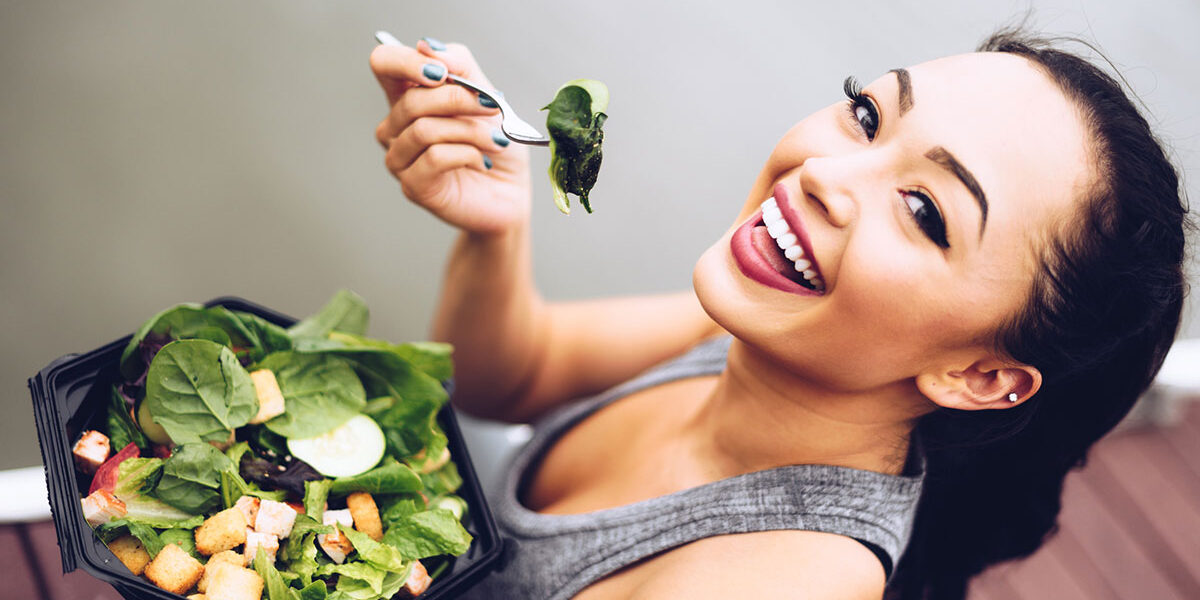Running has increased in popularity since the closure of gyms this spring due to COVID. Aside from the benefit of being virtually germ-free, outdoor exercise also helps clear your mind and connects you with nature. With all of these positives, there are few things you need to worry about except proper running nutrition.
While running is an easy enough exercise you must listen to your body and provide it with the right nutrients and fuel it needs to get the job done. How do you best fuel your body to get the most benefit out of your running regime? We have the answers.
Running Fuel Tips
We asked our Naturopathic Doctors and they provided some of the best before and after running meals that will improve your energy for running while encouraging nutrients you need for a strong lean body. They also shared what foods you should avoid or moderate when taking up running to get the best results.
Your pre-run meals should depend on the type of run you are planning to do. Are you planning a long-distance run or a short (60 min or less) run? Will you be attempting to run at intense speed or will it be a steady-state? Your running plan affects how you will need to fuel before the workout.
Short Runs VS Long-Distance Runs
For a shorter run, an 8oz electrolyte drink can be enough of a boost if you run early in the morning and value extra sleep over getting up early to digest food. Your body will use the sugar from your bloodstream and then go to your glycogen stores for fuel. A shorter run usually won’t deplete your stores completely.
For a long-distance run, you want to make sure you fuel or you may not be able to complete your goal. This means that you might hit a brick wall half-way through the run. Once your body uses the sugar in your bloodstream it will start to deplete your glycogen stores and you will need extra fuel to complete the run.
Pre-Run Meals
Here are some easy to digest foods made primarily of carbs to give you the energy you need for your run (long or short):
- Banana & Almond Butter
- 1/2 cup oatmeal with blueberries & a little honey
- Boiled egg & cheese
- Small energy bar
It is also important to sip water throughout the activity, especially if you are doing a long-distance run. No matter what type of run you plan, make sure that you are choosing foods that don’t upset your stomach. This will be a matter of testing foods to see what works with your GI tract. Fiber is an example of healthy food that isn’t great pre-run because it could cause gas, bloating, and make you have to “go” during the run.
Post-Run Meals
Post-run meals are equally important to fuel the body in a way that helps you achieve your goals. Are you running for weight-loss? Muscle building? To improve athletic endurance? These are important things to consider when you decide how to refuel after a run. Someone who is training for a marathon might load up on more carbs than someone who is running shorter distances daily for weight-loss.
Excellent Post-Run Foods:
- Beets, arugula, & spinach: These foods produce nitrate oxide which is an important molecule for healthy blood vessels. Mix these up in a salad and add a side of protein!
- Watermelon: This fruit contains 91% water which helps rehydrate the body, it also contains citrulline which is an amino acid that helps boost nitric oxide production in the body. Both of these benefits can delay exercise fatigue and relieve muscle soreness or cramps.
- Hummus & Fresh Veggies: Hummus is made from chickpeas, lemon, olive oil, and salt which are all great post-exercise. Dip some fresh carrot sticks, peppers, celery sticks, or cucumber for a great post-run snack.
- Apple & Peanut Butter: Apple can help with energy and restore some sugar to your body. Choose natural peanut butter for healthy fat.
- Whey Protein Shake with Chocolate Milk: If you aren’t against whey and don’t have a dairy allergy then this is a win for fast recovery if you are short on time. Whey protein is easy to digest and chocolate milk is a fast-digesting carbohydrate to help with muscle recovery and energy.
- Grilled Chicken & Roasted Vegetables: Lean protein like chicken will help with rebuilding muscle while roasted veggies offer nutrients and carbs. Opt for vegetables like Brussel sprouts, broccoli, asparagus, and cauliflowers to get healthy nutrients and toss them in olive oil for a healthy fat to satiate you.
Foods to Avoid!
This may seem like an obvious tip but alcohol is something you should try to avoid when you are starting a new running regimen or if you are training for athleticism. Alcohol wreaks havoc on the body because it is a diuretic and contributes to dehydration which is terrible for your muscles. It will increase overall fatigue, decrease ambition, but also affects your body’s ability to regulate temperature making your run more difficult. Soda, excess sugar, energy drinks (which affect your heart rate), and fried foods are all counter-intuitive to taking care of your body for a new exercise program.








